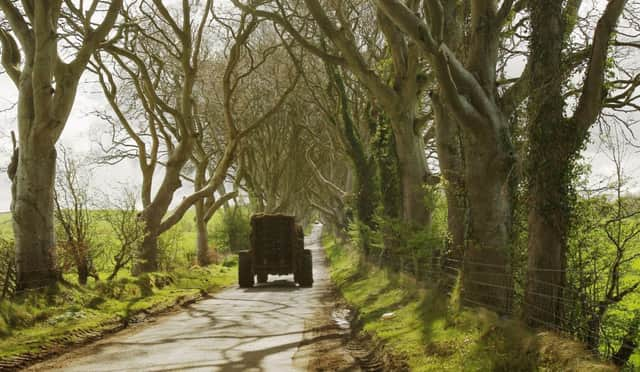New Environmental Farming Scheme open for applications


The EFS is funded through the NI Rural Development Programme 2014-2020 with a budget of around £100 million allocated to this part of the programme with the majority of this funding coming from the EU.
Despite the NIRDP being approved by Brussels in May 2015, the EFS is only ready to accept applications from farmers from this week. The UFU has been frustrated by the ongoing delays but now that the scheme is up and running, the UFU would encourage farmers to consider applying.
The Environmental Farming Scheme has three levels:
o Wider – for land outside designated areas
o Higher – primarily for designated sites
Advertisement
Advertisement
o Group – to support farmers working together in a specific area (this will open with a pilot scheme later this year).
While many farmers have been involved in agri-environment schemes in the past such as the CMS and the NICMS, this scheme has some key differences. Successful applicants to the EFS will be offered a five year agreement and unlike previous schemes this is not a ‘whole-farm’ scheme therefore, farmers can select just some parts of the farm under the wider scheme (those applying to the higher scheme must submit all land classified as ‘higher’).
Farmers will not have the same level of contact with a DAERA Countryside Management Branch adviser as in previous schemes but the wider scheme is simpler and therefore less help should be necessary.
There are just 20 general options available for farmers to choose from in the wider scheme making it much simpler than previous agri-environmental schemes in addition to some ‘non-productive investments’ which are basically capital items to help deliver some of the options. There are also stand-alone options such as organic, woodland and native breeds that can be applied for.
Advertisement
Advertisement
Up to four general options can be selected with the minimum wider agreement at £2,500 over the duration of the five years up to £12,500 for a farm less than 25ha increased by £12.67/ha for each additional hectare over 25 ha up to a maximum of £20,000 over five years.
The higher level scheme is more complex and while the application process is simple, if a farm business is successful following application, they will be subsequently required to employ a suitably qualified ‘environmental planner’ to draw up a Site Specific Remedial Action Plan (SSRAP) for the higher level land which is then submitted to DAERA for approval and an agreement issued. If successful the cost of the planner can be refunded up to a maximum amount. The Higher level scheme has many more options available and therefore annual payments may be higher than those set out for the wider scheme.
As with all schemes, penalties can be applied if works are not carried out or are not carried out to the appropriate standard, therefore when applying farmers should think carefully as to what options work for them and what they will be able to manage.
To be eligible for the scheme farmers must have 3ha of eligible land, have management control (claiming BPS) of the land and be prepared to meet the various requirements such as meeting cross-compliance and greening, complete training and keep records. All applications for the EFS must be done online.
Advertisement
Advertisement
The UFU highlighted concerns around this policy and DAERA have taken steps to assist those who may have problems with working online. The UFU have also raised concerns about the ongoing online contact after the application process and DAERA have suggested that farmers can opt for hard copies of agreements etc when applying to the scheme.
This is the first tranche therefore there will be further opportunity to apply to the scheme in future years and despite Brexit, the UK Treasury has given a guarantee that all agreements signed before the UK leaves the EU will be fully funded.
The Union is advising farmers if they are interested in the scheme, to set up a Government Gateway Account (unless they already have one) which they will need, along with a DAERA access key and a valid e-mail address to complete the application online. More information about applying online and the EFS can be found on the DAERA website.
The EFS sounds complex however the online application is relatively straightforward and will show which options are available in each field on a farm. The application window closes on the 31 March 2017 so the UFU would suggest that if interested farmers start considering their options now and don’t leave this to the last minute.
Advertisement
Advertisement
Agri-environment schemes have delivered for both the farmer and the environment in the past and the UFU would encourage farmers to get online and see what options are available to their farm business.